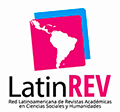“We must work to commune, because we have such different frames of redding”: dialect aspects in the language of woman on the edge of time by marge piercy
DOI:
https://doi.org/10.11606/issn.2317-9511.v31i0p54-86Keywords:
literary translation, dialect, Science fiction, fantasy, affective thematasing, Marge Piercy.Abstract
This article aims at contributing to the Translation Studies in the area of science fiction translation. What we intend to present are the particularities of the genre in its strategies to build a new world and the establishment of some kind of language mediation in order to discuss the effects of the relations between language and society. Relying on the Stylistics concepts of foregrounding (LEECH, 1969; MANDALA, 2010) and affective thematising (STOCKWELL, 2000), we are going to demonstrate how the novel Woman on the Edge of Time by Marge Piercy creates some varieties of contemporary standard English, in several levels: phonological, morphological, syntactic and semantic-pragmatic. To be able to translate these stylistic markings, we are going to access the theories of dialect translation (CARVALHO 2017; BEREZOWSKI, 1997), dialects as a representative form of marking/foregrounding the discourse. This article is one of the studies that serve as basis for the practice of the ongoing translation of the novel.Downloads
Download data is not yet available.
Downloads
Published
2018-04-19
Issue
Section
Articles
License
Copyright (c) 2021 Elton Furlanetto

This work is licensed under a Creative Commons Attribution-NonCommercial-ShareAlike 4.0 International License.
Autores que publicam nesta revista concordam com os seguintes termos:
- Autores mantém os direitos autorais e concedem à revista o direito de primeira publicação, com o trabalho simultaneamente licenciado sob a Licença Creative Commons Attribution BY-NC-SA que permite o compartilhamento do trabalho com reconhecimento da autoria e publicação inicial nesta revista.
- Autores têm autorização para assumir contratos adicionais separadamente, para distribuição não-exclusiva da versão do trabalho publicada nesta revista (ex.: publicar em repositório institucional ou como capítulo de livro), com reconhecimento de autoria e publicação inicial nesta revista.
- Autores têm permissão e são estimulados a publicar e distribuir seu trabalho online (ex.: em repositórios institucionais ou na sua página pessoal) a qualquer ponto antes ou durante o processo editorial, já que isso pode gerar alterações produtivas, bem como aumentar o impacto e a citação do trabalho publicado (Veja O Efeito do Acesso Livre).
How to Cite
Furlanetto, E. (2018). “We must work to commune, because we have such different frames of redding”: dialect aspects in the language of woman on the edge of time by marge piercy. TradTerm, 31, 54-86. https://doi.org/10.11606/issn.2317-9511.v31i0p54-86







